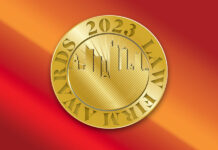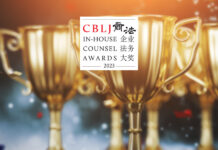As the name suggests, a perpetual bond is a bond without a time limit. However, “without time limit” here means with no maturity date, but not lasting forever. Perpetual bonds originated from the era of 18th century Napoleonic wars, when the UK treasury of the day issued a bond with no maturity date to raise funds for the Anglo-French War, to relieve the financial pressure from the long battle and increase the flexibility of financial policy.

Associate
Zhonglun W&D Law Firm
Different from the common bond – apart from having no specific maturity date – the issuer of the perpetual bond has no obligation to redeem the principal and only has to pay the agreed interest to the investors year by year.
Similarly, the investors of the perpetual bond have no right to require the issuer to redeem the debt prematurely, and the relevant investment agreements or loan contracts should not include any default clauses that may trigger the acceleration of maturity of the perpetual bond, even if the issuer delays in paying the overdue interest.
Redemption clause
However, in practice the perpetual bond usually has a redemption clause, namely a clause under which the issuer has the right (but no obligation) to redeem the perpetual bond at an agreed time or within an agreed time period, with the agreed price.
Accordingly, in order to urge the issuer to exercise the right of redemption, the relevant investment agreements or loan contracts can also include a rate adjustment clause, i.e. the interest rate in the agreed redemption period is higher than other periods.
Having no maturity date entitles the issuer of the perpetual bond to long-term use of the investment amount and the initiative of determining the actual term to use the investment amount.
Substance over form
According to the international accounting principle of “substance over form”, the perpetual bond may be treated as equity, not as debt, in the financial statement of the issuer.
The perpetual bond cannot only supplement the capital of the issuer, but also decrease the debt ration of the issuer. In addition, the perpetual bond can not only increase the equity of shareholders, but effectively avoid diluting the equity of issuer’s shareholders, which can embellish the financial statement of the issuer greatly and promote the perpetual bond to be an attractive financing instrument.
However, from a legal perspective the investors of the perpetual bond have no right to share the profit and residual property of the issuer, and the nature of the perpetual bond is still debt. Therefore, the perpetual bond is usually treated as subordinated debt; the rank is after normal debts but before shares (including common shares and preferred shares) in the repayment order.
Interest before taxation
In taxation, the interest on perpetual bonds can be reduced before taxation. According to the Announcement on Issues Related to Handling of Corporate Income Tax on Hybrid Investments of Enterprises, issued by State Administration of Taxation, perpetual bonds issued domestically would also adopt this tax treatment, which would reduce the financing cost of perpetual bonds to some extent.
From the perspective of the investor, as the perpetual bond is characterised by paying interest in the long term and without paying the principal, in general the issuers of perpetual bonds aiming to attract funds from many investors are the enterprises, banks and government institutions with better credit and higher reputations.
Meanwhile, the interest rate of the perpetual bond is usually higher than for the common bond, therefore those investors who prefer lower risk but pursue higher returns regard the perpetual bond as a good choice.
Renewed debt
The perpetual bond in China is usually not called a “perpetual bond”, but described as “renewed debt” or “medium-term note with long-term right”, which can be regarded as an attempt to avoid article 135 of the Company Law.
For accounting purposes, the Ministry of Finance issued the Supplementary Provisions for Financial Instruments Accounting Standards: the distinction between Debt Instrument and Equity Instrument and relevant Accounting Treatment on 20 January 2014, and it is expected that the accounting treatment of the perpetual bond will be defined more clearly in the near future.
Frenetic interest
The emergence of the perpetual bond also brings frenetic interest on financing among domestic real estate enterprises. In fact, the nature of some real estate perpetual bonds is that the banks issue entrustment loans to the real estate enterprises, and the agreed term of loan in the relevant investment agreements or loan contracts is the issue date of loan to the settlement date of the loan.
In practice, entrustment loans generally link to a specific asset management plan. Compared to a real estate trust, the asset management plan can effectively avoid regulatory requirements of the real estate trust such as that a real estate company should have the “four permits” (state-owned land use certificate, construction land planning permit, construction project planning permit and construction project planning permit), or that no less than 30% of a project company’s self-owned fund should be invested.
Adverse influences
To reduce the adverse influences brought by unforeseeable housing sales, the banks normally choose to issue loans to high-grade projects in the first-tier cities, requiring the borrower to provide guarantees such as mortgage of land use rights, pledge of shares, and set a higher interest rate and a clause regarding interest rate increases. As a result, when the real estate market is in a downturn, this kind of perpetual bond can force the borrower to face very high financing costs, so the risks should not be underestimated.
Li Zheng is an associate at Zhonglun W&D Law Firm
19/F, Golden Tower
1 Xibahe South Road, Chaoyang District
Beijing, 100028, China
Tel:+86 10 6440 2232
Fax:+86 10 6440 2915/2925
E-mail:lizheng@zlwd.com
www.zhonglunwende.com





















